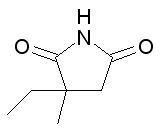Warner-Lambert Company agreed last August to stop making a wide range of drug products until it complied with federal regulations for good manufacturing practices (GMPs). A few prescription drugs deemed "medically necessary" and not available from other sources were allowed to remain in production under the agreement.
Under the terms of a consent decree of permanent injunction entered Aug. 16 in the U.S. District Court for the District of New Jersey, the pharmaceutical firm agreed to correct deficiencies in manufacturing practices uncovered by numerous FDA inspections at its plants in Morris Plains, N.J., Lititz, Pa., Rochester and Holland, Mich., and Vega Baja and Fajardo, Puerto Rico. Fourteen of the firm's drug products had been recalled since December 1992 for failing to comply with GMPs and product quality standards. None of the recalled products posed a critical health risk.
The firm also agreed to stop making most of its over-the-counter and prescription products until it complies with GMPs. Prescription drugs that remained in production, under conditions specified in the decree, were Celontin, chloramphenicol injection, Choledyl, Dilantin, Humatin, Ketalar, Loestrin 1/20, Lopid, Milontin, Nardil, Nipent, Nitrostat, and Zarontin. The conditions were imposed to ensure the drugs have the identity, strength, quality, and purity they are purported to have.
More than a dozen FDA inspections of Warner-Lambert plants from 1991 to 1993 revealed numerous repeated violations, which included failure to notify the agency of batches of drugs that failed product stability tests, Other problems found throughout Warner-Lambert's operations included:
* inadequate record keeping
* use of unapproved production processes
* lab workers not adequately trained to use drug analysis equipment or conduct drug tests
* ineffective quality control procedures
* failure to investigate quality control problems
* inadequate equipment cleaning procedures.
Despite the numerous inspections and notices to the company's officers of the problems found, the numerous product recalls, and other warnings by FDA officials, Warner-Lambert's GMP problems persisted. According to an agency official, the firm's responses to FDA observations showed a continuing failure to appreciate the significance of its violations.
Under the consent decree, Warner-Lambert agreed that:
* an independent expert will certify whether each laboratory at each of the facilities complies with the GMPs
* all laboratory personnel will be trained to be fully qualified to perform their assigned duties
* outside experts will certify whether manufacturing processes comply with GMPs
* expert certifications or remedial plans to correct deficiencies will be reviewed and subject to FDA approval for "medically necessary" products that are not otherwise available.
To ensure compliance, FDA will continue to inspect Warner-Lambert plants and examine production and testing records. Under the terms of the decree, FDA can order the company to recall products whenever the agency deems it necessary. FDA may also require Warner-Lambert to stop manufacturing and distributing any drug product that falls to comply with GMPs. The decree also requires Warner-Lambert to pay damages if it violates the injunction and to pay costs incurred by FDA for continuing oversight of the company 's manufacturing processes.
COPYRIGHT 1994 U.S. Government Printing Office
COPYRIGHT 2004 Gale Group



